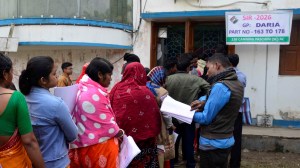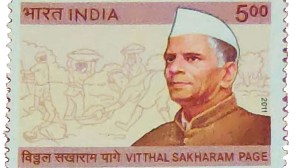Rahman case, Buddha146;s truth
West Bengal Chief Minister Buddhadeb Bhattacharjee never appeared so fidgety, not even after the Singur fiasco and the Nandigram killings...

West Bengal Chief Minister Buddhadeb Bhattacharjee never appeared so fidgety, not even after the Singur fiasco and the Nandigram killings, when he faced the media recently 8212; twice in quick succession. On the first occasion, he announced the withdrawal of a state police agency, the CID, from inquiring into the unnatural death of Rizwanur Rahman, allowing the CBI to step in. This was after a Calcutta High Court order. Then he stated he was scrapping a judicial commission he had set up to inquire into the episode.
In between these two developments, there have been other major setbacks. The most stunning among them was the virtual shunting out of almost the entire top brass of the Kolkata Police, including Bhattacharjee8217;s handpicked commissioner of police, Prasun Mukherjee.
All these indicate that the the government had bungled in its initial response to the tragedy. Today the issue has snowballed into a major embarrassment for the government and the CM in particular. What surprises many is the fact that although it has been two months since news of the Rahman killing surfaced, Buddha is still struggling to come to grips with its repercussions.
There are other aspects to consider too. For the first time in his seven-year tenure, Buddhadeb Bhattacharjee8217;s image as being in command has taken a beating. The admission that the case has been a staggering blow to the government came from none else than CPM patriarch Jyoti Basu, who had stated that the government could have handled the issue better and acted with far greater promptness in removing the tainted Kolkata police officers than it had. As Basu put it, 8220;The delay has harmed the image of the government.8221;
Another unique feature of the case was that strong public opinion influenced government action probably for arguably the first time in the three decades of Marxist rule in the state. Thus far the government appeared impervious to public and press criticism. Take, for instance, the brutal killing of the Kolkata police officer, Vinod Mehta and his body guard, by criminals in the Garden Reach area in 1984. The bureaucracy, including the Kolkata police commissioner, remained unscathed despite this loud criticism from all quarters. The indiscriminate police firing on Mamata Banerjee8217;s rally in 1993, which resulted in the death of 13 young people in the heart of Kolkata also failed to elicit a response. No heads rolled, despite the then police commissioner of Kolkata having publicly defended that brutal police action. Or, consider the Chhoto Angaria massacre in Midnapore in January 2001, in which party activists brutally gunned down nearly a dozen of their political opponents. The CBI investigating the case indicted a number of local CPM leaders although it failed to arrest them. The most dreaded of the lot continued to roam free, draw their salaries from school and attend party conferences. No remorse from killers, no punishment to them. This trend held true even after the administrative and political bungling in Nandigram, which resulted in the killing of at least 14 villagers.
Now suddenly comes the Rizwanur Rahman case, involving the broken marriage between a Hindu businessman8217;s daughter and a young, urban middle-class Muslim man, and the government appears rattled as never before. Perhaps Buddhadeb Bhattacharjee and his party colleagues have come to realise the power of articulate, middle- class urbanites who have raised their voices in outrage against the alleged murder of Rahman. But there is also a community angle in this episode. The script is familiar: a wealthy businessman father and his associates with shady links pull strings to break off a perfectly valid marriage between two adults. In the background are top cops who are more concerned about pleasing their political bosses than addressing public grievances. Perhaps it is this communal angle that has changed the rules of the game. Bhattacharjee himself admitted, 8220;We cannot ignore the communal aspect and the play of money power in this event.8221;
The government8217;s missteps on the Rahman case could not have come at a worse time. The CM is still very much on the back foot over the Singur and Nandigram setbacks. His craving for a fresh initiative to overcome those setbacks was just beginning to show. The Rahman episode has suddenly and cruelly exposed the inner weaknesses of the CM, even as his own comrades within the party have exerted enormous pressure on him to do the right thing in this tragic case. Buddhadeb Bhattacharjee may have initially missed the significance of this alleged murder. Today he cannot but acknowledge its significance.
- 01
- 02
- 03
- 04
- 05































